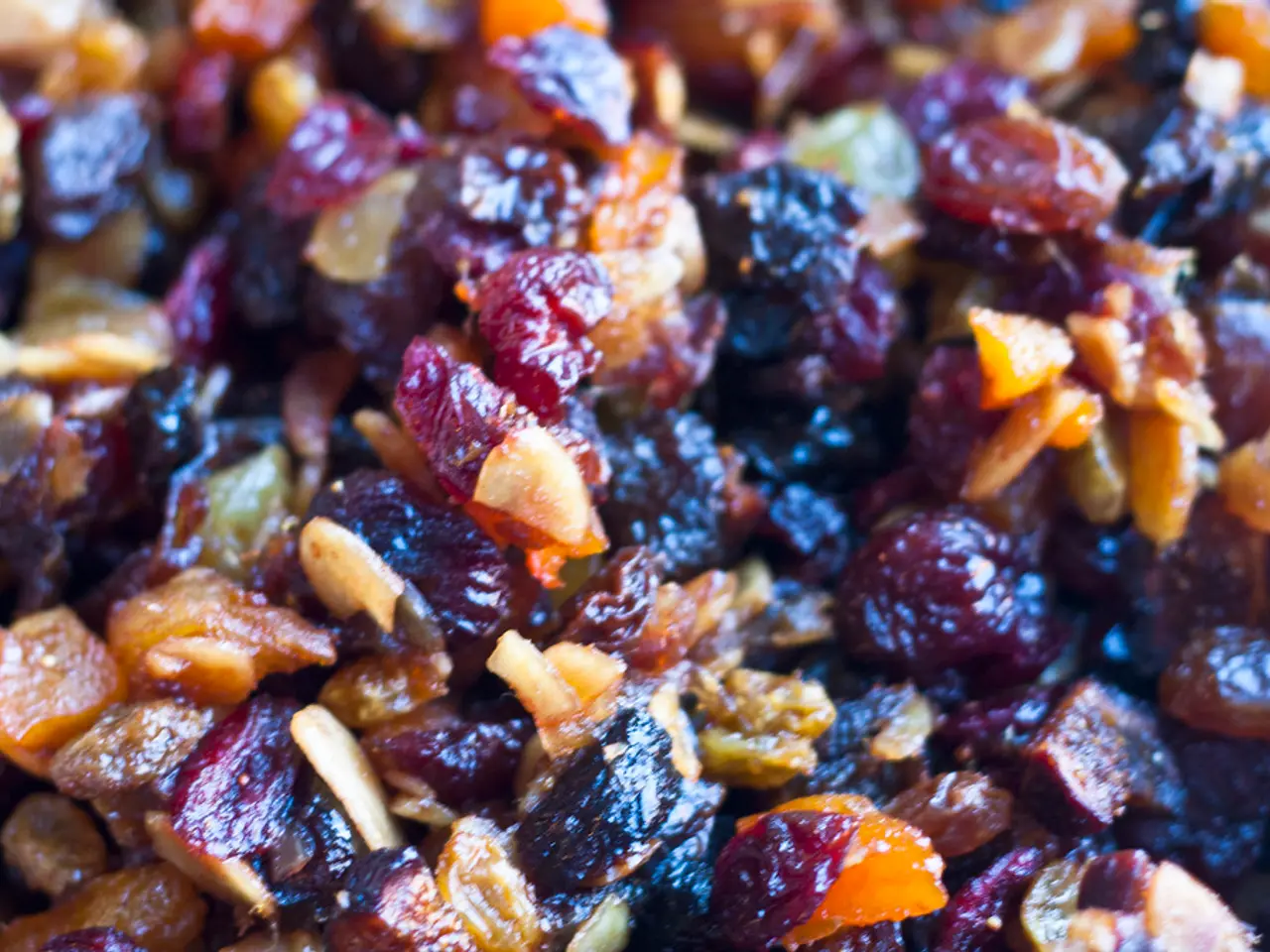Prepare Your Own Canine Cuisine at Home
When it comes to feeding our furry friends, it's essential to remember that dogs have different nutritional needs than humans. This is due to differences in physiology and metabolism. Here's a breakdown of the key nutrients to focus on when creating homemade dog food recipes.
Protein: The Building Block for Canine Health
Dogs require a higher proportion of animal-based protein with all essential amino acids such as taurine and arginine. High-quality proteins from meats like chicken, beef, turkey, or fish are crucial to maintain muscle and overall health. Unlike humans, who can often meet their protein needs from plant sources, dogs thrive on a diet rich in animal proteins.
Fats: Essential for Skin, Coat, and Joint Health
Dogs benefit from specific fats including omega-3 fatty acids from fish oil or flaxseed. These fats support skin, coat, brain, and joint health. Human fat requirements, on the other hand, can be more varied in type and proportion.
Carbohydrates: A Source of Energy and Fiber
While humans can thrive on a varied and often higher carbohydrate diet, dogs require carbohydrates mainly as an energy source and fiber. Complex carbs like brown rice, quinoa, sweet potatoes, and vegetables are ideal. The proportion of carbohydrates in a dog's diet is less than in humans.
Calcium and Phosphorus: Building Blocks for Strong Bones and Teeth
Dogs need precise amounts of calcium and phosphorus for strong bones and teeth. These minerals can be supplemented in homemade meals via ground eggshells or plain yogurt. While humans also need these minerals, their dietary sources and absorption differ.
Vitamins and Minerals: Tailored to Canine Health
Dogs require certain vitamins like vitamin A in a different form (preformed vitamin A from animal sources) and cannot synthesize some vitamins efficiently that humans can (e.g., niacin). Homemade diets often require supplementation of vitamins and minerals to avoid deficiencies seen in unbalanced recipes.
Amino Acids: Essential for Canine Health
Dogs have specific amino acid requirements like taurine and L-carnitine which are not essential or are less critical for humans but vital for canine heart and eye health, especially in homemade diets without organ meat or fish.
Avoiding Toxic Ingredients
Some foods safe for humans (e.g., onions, garlic, chocolate, grapes) are toxic for dogs and must never be included in their diet.
A Balanced Homemade Diet: Key Ingredients
A balanced homemade dog food recipe should include protein (chicken, turkey, beef, or fish), carbohydrates (brown rice, quinoa, or sweet potatoes), vegetables (carrots, peas, spinach, or green beans), fats (olive oil, fish oil, or chicken fat), and supplements (calcium and vitamins).
Preparing dog food at home offers a nutritious and customizable way to meet your dog's dietary needs while ensuring they enjoy wholesome, high-quality meals. However, ensuring nutritional adequacy is critical. Monitor your dog's weight, energy levels, coat condition, and stool quality after starting a homemade diet.
Consult a vet or pet nutritionist to evaluate your homemade dog food recipes and confirm they meet your dog's specific dietary requirements based on its age, breed, size, and activity level. Regular health checkups are necessary to adjust the diet as needed.
Whether supplementing commercial food or opting for an entirely homemade diet, preparing dog food at home can be rewarding to strengthen the bond with your furry companion. Homemade dog food recipes can contribute to your dog's overall well-being, energy, and longevity.
Pets, like dogs, have unique dietary needs due to their physiology and metabolism. Incorporating a variety of food groups into their lifestyle, such as home-and-garden produce like carrots, peas, spinach, or green beans, can help improve their health. However, it's crucial to remember that pet foods should avoid toxic ingredients, such as onions, garlic, chocolate, and grapes, that may be safe for humans but harmful to pets.




